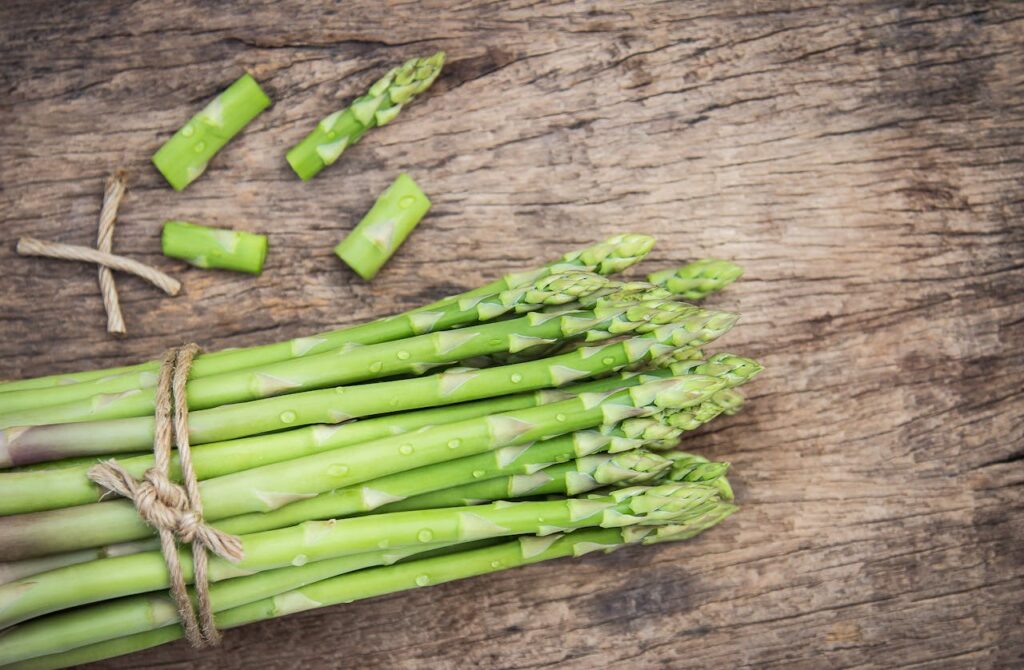
Asparagus is a plant that blooms. However, it’s most commonly known for its tender shoots, which can be grown as spring vegetables. Raw, cooked, blanched, or cooked as a tasty springtime dish or a fresh food item. Much like many curious pet parents, You might find yourself inclined to shoot at your cat while you cook dinner. Giving back is a way to show love!
Can cats actually take asparagus? Yes! Cats are able to eat asparagus in tiny amounts, and it’s safe for cats. Because cats are carnivores, but it’s not an ingredient you’ll come across regularly in cat food and cat treats. Even though asparagus is a rare ingredient you can feed your cat and isn’t a necessary component of their diets however, it can provide health benefits of asparagus if it is fed infrequently as a snack.
Do cats like asparagus?
Asparagus is an ingredient that some cat owners have shared with their pets, which they love. What cats enjoy and dislike can be very unpredictable. As they do not have sweet-taste receptors, they might be irritated by the juicy fruit, opting instead to chew on an asparagus-like vegetable instead. The texture and taste of asparagus can be a pleasant experience for their gums, particularly if they suffer from some gum condition or gingivitis.
Another reason that cats could enjoy asparagus is the fact that they are innate. Cats do not eat fruit or other vegetables when they are in nature. However, they can chew grass. The belief is that it can benefit to ease stomach upset and cause vomiting. Certain researchers suggest that cats consume grass in order to increase the activity of their stomachs and eliminate parasites. Although asparagus is known by been known as “sparrow grass,” it’s not formally part of the grasses family. There’s still a chance that eating some asparagus is an instinctual habit.
Health benefits of asparagus for cats
As is the case with most veggies, asparagus also has plenty to offer with regard to the health benefits. It’s low in calories yet packed with vitamins and minerals. We’ll look at a few ways you can use asparagus to benefit your cat.
It aids digestion
Asparagus is rich in diet fibers, which could help the digestion of your cat and promote healthy stool movement. Fiber can benefit the treatment of constipation and diarrhea as well as move hairballs throughout the intestinal tract.
It helps in controlling excess weight.
Asparagus will make your cat feel fuller due to its fiber content. Also, it’s very energy-efficient and low on calories. It’s a great green that you can chop and include in your cat’s diet if they’re too large on the side.
A good source of nutrition.
Asparagus is also high in all sorts of nutrients that benefit from keeping your cat healthy. As an example, Vitamin C increases your cat’s immune system. Vitamin A aids in vision, and vitamin K is a great way to prevent blood clots. The body is rich in folate as well, which helps your cat’s muscles to contract.
Half 1 cup (90 grams) of asparagus cooked contains:
- Calories: 20
- Protein: 2.2 grams
- The fat: 0.2 grams
- Fiber: 1.8 grams
- Vitamin C: 12% of the RDI
- Vitamin A: 18% of the RDI
- Vitamin K: 57% of the RDI
- Folate: 34% of the RDI
- Potassium: 6% of the RDI
- Phosphorus: 5% of the RDI
- Vitamin E: 7% of the RDI
How much asparagus can I give my cat?
If you feed your cat something unfamiliar, begin with a small quantity, and if there is doubt, you should give your vet a phone call prior to calling. Asparagus can be eaten fresh, but it’s best to soften it by cooking or steaming it so that you don’t choke. Don’t feed your cat any cooked asparagus as the excessive salt on their food or any other spice like onions and garlic may be hazardous.
A spear of asparagus cooked contains just 3 calories! Although that may seem small, it is important to keep your cat’s intake at one teaspoon or less for each serving. Due to its alkaline content, excessive consumption of asparagus may eventually alter the pH of the urine of your cat, which could cause bladder stones. If your cat is suffering from a bladder infection (or cystitis), it is best to stay clear of asparagus.
The amount of asparagus your cat gets will be the same as how you treat your pet. One of the desirable ways to figure out how much treatment your cat is receiving can be done with the rule 90/10. Ninety percent (or greater) or more of the energy must be derived from cat food, with 10 percent (or lower) in treats. The Pet Nutrition Alliance offers an online tool that helps you figure out the caloric needs of your cat.
Can cats eat asparagus fern?
Asparagus Fern, also referred to as Lace the fern asparagus grass the ferny asparagus, or climbing asparagus, is poisonous to dogs, cats, as well as humans. The leaves and berries from the plant should not be consumed, as they can trigger vomiting, diarrhea, and stomach discomfort. If your cat is a victim of the ferns of asparagus, It’s best to consult your vet or call the pet poison hotline.
Overall the, asparagus can be described as a healthy vegetable that is low in calories. You can add it as a treat to your cats’ diet. It may help reduce their appetite and keep their digestive system on the right track. Try to see if you are a fan of the crunch.
